Manfred Lautenschläger Award for Theological Promise
The Award-Winners 2014 and their Research Activities
1. David Albertson
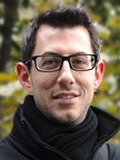
Current position:
I am currently Assistant Professor of Religion at the University of Southern California in Los Angeles. I study and teach on topics in medieval and early modern Christian thought.
Current research:
My current research project is titled “Figures of the Invisible: Geometrical Icons in Early Modern Christianity.” This monograph in progress examines several prominent humanist reformers between 1400 and 1600, who incorporated elaborate sacred geometrical images in their religious writings in ways that resemble Byzantine icons or medieval mystical visions. These geometrical icons betray a desire for certainty amidst the confusion of church reform, but also reveal an iconoclastic predilection in learned circles parallel to the actual destruction of images.
How book relates to "God and Spirituality":
My book, "Mathematical Theologies: Nicholas of Cusa and the Legacy of Thierry of Chartres" (Oxford University Press, 2014), studies how some ancient and medieval Christians conceived of God in dialogue with Pythagorean philosophical traditions. This research makes new contributions to historical scholarship on the theologies of Thierry of Chartres and Nicholas of Cusa in particular, each of whom was a major luminary in his own century. I especially discuss spirituality and mystical theology in the book’s final part on Cusanus. But the book also speaks to the contemporary dialogue between religion and science, by re-examining the relationship between Christian doctrines of God and the historiographical notion of the “mathematization of nature” in the seventeenth century. I suggest that given the robust mathematical theologies of Thierry and Nicholas, it cannot be the case that the mathematization of the cosmos by modern science is necessarily a force of secularization.
Academic address:
2. Michal Bar-Asher Siegal
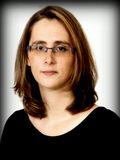
Michal Bar-Asher Siegal is a graduate of the department of Religious Studies at Yale University (PhD) and is a scholar of rabbinic Judaism. Her work focuses on aspects of Jewish-Christian interactions in the ancient world, and compares between Christian monastic and rabbinic sources. She also published on topics such as the Syriac version of Ben Sira, and the tannaitic Midrashim. She is currently the Rosen Family Career Development Chair in Judaic Studies at The Goldstein-Goren Department of Jewish Thought Ben-Gurion University of the Negev (tenure track position).
God and Spirituality and my book:
This soon to be published monograph (December 2013) examines previously unstudied parallels and connections between Christian monastic texts, specifically the Apophthegmata Patrum, and traditions from the Babylonian Talmud. Previous scholarly works discuss the relationship between the Jews and Christians, as evident in the Talmud, as mostly polemical or satirical. However, in passages dealing with spiritual matters such as repentance, the role of asceticism, and seclusion as a tool in one’s spiritual advancement, I claim, is where one will find a literary dialogue between the rabbinic and monastic texts. These points of contact between Jewish-rabbinic texts on the one hand, and Christian- monastic texts on the other, focus precisely on issues relating to spirituality and the relation between a man and his God in both religious groups, and in the process shed new light on the complex relations between the two religious groups.
Academic Address:
3. Matthias Becker
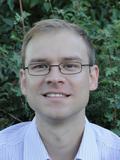
Current position:
Postdoctoral scholar at the Collaborative Research Centre (CRC) 923 “Threatened Orders. Societies under Stress” (University of Tuebingen), Project D01: “Platonism and Christianity: Philosophical and Literary Constellations of Threat in Late Antiquity”
Current research activities:
Becker is currently in the process of preparing a new edition of Porphyry’s fragments “Against the Christians” with a new classification of fragments, German translation, commentary, and introduction. The fragments are interpreted with a special focus on anti-Christian polemics and Neoplatonic strategies to deal with the Christian threat.
How the book relates to “God and Spirituality”:
In his “Lives of the philosophers and sophists” (written around 400 CE), Eunapius not only presents Neoplatonic philosophers and rhetoricians as intellectuals, but also as ‘holy men’. That is why it is appropriate to read his text as pagan hagiography. In his book, Becker emphasizes that Eunapius promotes Neoplatonic spiritual practices and that he uses the biographical genre to exemplify the central Neoplatonic idea of ‘assimilation to God’. According to Eunapius, assimilation to God can be reached by practicing philosophy, by a strong commitment to pagan education in all its variety (paideia), and by adherence to religious and theurgic rites. The protreptic portrayal of pagan religion and Neoplatonic spirituality can also be interpreted against the background of Eunapius’ polemics against Christianity. Very clearly Eunapius disapproves of Christian holy texts and of Christian spiritual practices like the cult of martyrs and relics. Furthermore, he attacks the Christian monks of Egypt severely who in his view are an example of how the Christian religion depraves mankind morally, ethically and spiritually.
Academic address:
CRC 923 “Threatened Orders. Societies Under Stress”
University of Tuebingen
Keplerstr. 2
72074 Tuebingen/Germany
Email-Address: matthias.becker@philologie.uni-tuebingen.de
Homepage:
http://www.uni-tuebingen.de/forschung/forschungsschwerpunkte/sonderforschungsbereiche/sfb-923/personen/becker.html
4. Angela Roskop Erisman
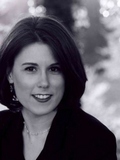
I serve as the Managing Director of Hebrew Union College Press, which is devoted to publishing the finest scholarship across the entire spectrum of Jewish Studies, ancient and modern.
Current research project:
My current research project is a book tentatively titled The Wilderness Complaints: A New Approach to the Transmission History of the Pentateuch. The current project deals with the complaint episodes structured by the itinerary notices I analyzed in my first book, The Wilderness Itineraries: Genre, Geography, and the Growth of Torah. While The Wilderness Itineraries was a study in the transformations of one narrowly defined genre and their implications for literary history, The Wilderness Complaints will bring North American and European approaches to historical criticism of the Pentateuch into conversation and focus on how literary theory can help us transcend the current impasse in the discipline.
Relationship of book project to the theme “God and Spirituality”:
The Wilderness Itineraries helps readers better appreciate the function of scripture by helping them better appreciate its transmission history. It shows how profoundly creative Ancient Israelite scribes were in their efforts to reshape biblical tradition to speak to ever new circumstances. Modern readers who understand how the Torah was formed may be inspired to engage with it themselves in ways that are both creative and rooted in tradition. The volume also shows how the itinerary genre draws us into the narrative and prompts us to see ourselves as part of a community that, in spite of all its ups and downs, its twists and turns, is on a journey toward a renewed relationship with God. The itinerary notices depict this journey not as aimless wandering but as a triumphal march, cultivating a hopeful attitude toward our journey in spite of its hardships. The wilderness narrative does not simply relate an event that happened in the distant past, but has the power to shape generation after generation of readers in tangible and meaningful ways.
Academic address:
5. Jennie Grillo
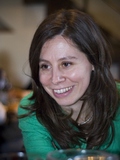
Current Position and research project:
Jennie Grillo is Assistant Professor of Old Testament at Duke Divinity School. Her current book project seeks to read the Additions to Daniel in company with later communities for whom those writings functioned as authoritative scripture, focusing on particular interpretive clusters which have gathered around the texts in Jewish and Christian literature and material culture. She is also interested in biblical ideas of idolatry in the light of later intra-Christian polemic, and in a subsequent project plans to engage this set of questions.
Relationship of book project to the theme “God and Spirituality”:
In the literary tradition of the modern West, Qohelet’s ‘nothing new under the sun’ has been taken as the motto of a book that is universal in scope, Greek in its thought, and floating completely free from the Jewish particularism and historical concerns of the rest of the Bible. This study suggests that that way of seeing Ecclesiastes – as philosophical, practical and non-theological – is just the result of one kind of cultural assimilation, and that our mode of reading it as a subversive meditation on general truths may be a familiarisation of its real ancient Jewish theological identity. Reading the book as a site of Israel’s cultural memory reveals its deep roots within its native context in early Judaism, as the specifically biblical texture of Qohelet’s discourse is heard within the echo-chamber of his own literary culture. This work thus seeks to problematize the widespread understanding of the book captured in Martin Hengel’s observation that Qohelet ‘denationalizes’ the concept of God: national consciousness, it is argued, is everywhere in the book, and if Qohelet speaks of a universalized God he still does so in an Israelite voice.
6. Wolfgang Grünstäudl

Wolfgang Grünstäudl is lecturer and research assistant in the field of New Testament studies and church history (especially early Christianity) at the University of Wuppertal (Germany).
Current Research Projects:
Besides several articles on the Catholic Epistles (especially 2 Peter) and some non-canonical early Christian texts (especially First Clement and the Apocalypse of Peter), Wolfgang Grünstäudl currently prepares his second co-edited book (with Markus Schiefer Ferrari) on Biblical theology and dis/ability studies. Investigating the history of his own discipline, he works on the development of Catholic New Testament scholarship during and after World War II. Moreover, Grünstäudl contributes to the Historical and Theological Lexicon of the Septuagint and to the Brill Encyclopedia of Early Christianity.
Grünstäudl’s next major research project will be his habilitation at the University of Regensburg, examining in detail the literary and theological function of the so-called doublets in the Gospel of Luke (tentatively entitled “Iterative Theology”).
Relation to the Topic “God and Spirituality”:
According to the Second Epistle of Peter, nothing less than becoming “partakers of the divine nature” is the very purpose of Christian life (cf. 2 Peter 1:4). In Eastern (Orthodox) theology, this verse has had great impact on the development of the concept of theosis, which is inseparable connected with the spiritual life of so many Orthodox Christians in past and present. In a similar way, 2 Peter 1:4 was a locus classicus of pietistic mysticism.
Despite its apparent importance to Christian theology and spirituality, 2 Peter’s theology has been heavily criticized in modern times. Some scholars even questioned 2 Peter’s right to be part of the New Testament, while others thought that 2 Peter is little more than a mixture of unchristian polemical charges. Although more recently the interest in 2 Peter has measurably increased within Biblical scholarship, it remains still unclear in which historical and theological context 2 Peter was created. The award-winning book proposes a new solution to this problem and seeks to enable a more appropriate interpretation of 2 Peter and a fuller understanding of its theological message.
Academic Address:
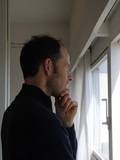
Current Position:
Lecturer in the Philosophy of Religion, Department of Religion and Theology, University of Bristol. Leech’s current research is dedicated to the question of the role of Spinoza in the construction of avowed intellectual atheism in early modern Europe.
The Award Winning Book:
My book The Hammer of the Cartesians: Henry More’s Philosophy of Spirit and the Origins of Modern Atheism (Leuven: Peeters, 2013) examines, via a study of the English philosopher Henry More’s (1614-1687) oeuvre within its broader continental European context, how transformations in the concept of spirit in mid-seventeenth century English natural theology may be seen as contributing to a slow and unintended secularisation process internal to early modern European theistic culture. It focuses in particular on the remarkably understudied evolution of the concept of spirit or spirituality in early modernity - ‘spirituality’ understood here in the sense being a spiritual (sc. incorporeal) substance - as it is applied both to God (infinite spirit) and souls (finite spirits). It thus fills a lacuna in scholarship by examining how conceptual changes in early modern metaphysics, as opposed to better researched transformations in moral philosophy, were an additional ingredient in the origins of modern speculative atheism.
Academic Address
8. Mika Pajunen
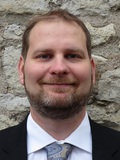
Pajunen is a Postdoctoral Researcher at the University of Helsinki. He is currently working on his next book project: Scribes and Songs: A Study of a Literary Phenomenon of the Second Temple Period. In it he studies the editorial scribal practice of inserting entire songs and prayers into an otherwise mainly narrative context, which was a prominent phenomenon particularly in the Hellenistic period. Evidence for this practice is found among the books of the Hebrew Bible, the Apocrypha and Pseudepigrapha, and the Qumran manuscripts. In addition, Pajunen is preparing the official re-editions of several manuscripts from Qumran Cave 1 that contain psalms and prayers.
How the book relates to God and Spirituality
The book focuses on different collections of “apocryphal” psalms and on manuscript 4Q381 from Qumran in particular, but it also provides fresh insights on the diverse functions of psalms and prayers in late Second Temple period Judaism. The increasing centrality of prayer as a vehicle of spirituality in both private and public devotion is evident in these psalms and much weight is placed on the power of prayer. Another area of emphasis is the continuing search for understanding of the principles behind how God’s justice works. This quest is the central reason for the composing of 4Q381 and has an important bearing on understanding, for example, the Psalms of Solomon. Finally, these psalm collections together with the now canonical psalms provide evidence of the diversifying functions of psalmody that expanded their usage as a dialogue between God and men to completely new areas. Psalms were not only used as a discourse with God in liturgical settings, but were also studied as sources describing past events and as ethical instruction; and finally they came to be viewed as prophecies that could be investigated for clues given by God about the future.
Academic address:
9. Devin Singh
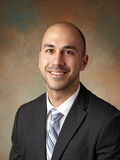
Devin Singh is currently a Mellon Postdoctoral Fellow in the Integrated Humanities and Lecturer in Religious Studies at Yale University.
Current Reseach Project
For his second major research project, Singh will explore the financialization of human life and value in light of Christian theological reflection on the self and critical theories of subjectivity. Although the calculation of human worth with financial categories appears novel and distinctly modern, practices of quantifying human value and administering justice economically have a much longer history. Singh intends to explore such practices in the ancient world and trace the ways theological discourse abstracted such understandings through invocations of infinite human worth, asking what implications such genealogy has for understanding and responding to current trends.
Relationship of book project to the theme “God and Spirituality”:
God's Coin: On Monetary and Divine Economies
This study brings a genealogical perspective to contemporary analyses of money and economic power in the West. Singh claims that a long history of interaction and connection between monetary economy and theological language has meant both that theology is influenced by economic concepts and practices and that economy is theologically legitimated. It is therefore no surprise that money and economy take on a quasi-spiritual power and significance or that language about the divine lends itself to descriptions of the market. The two “economies”—monetary and divine—have been informing one another throughout Western history. Singh demonstrates how theologians in Late Antiquity relied upon language, metaphors, and concepts from Greco-Roman economy to give structure to their own ideas about how God governs the world and what divine redemption accomplishes. Images of God as a divine administrator and Christ as a monetized payment could lend themselves to Christian imperial regimes to aid their own economic administrative practices. The legacy thus bequeathed to Western governments includes implicit ideas of divine economy that may legitimate wider socio-economic policies and institutions.
Academic address:
Department of Religious Studies
Yale University
451 College St
10. Matthew Thiessen
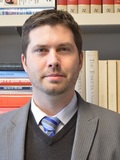
Current Position:
Matthew Thiessen is Assistant Professor of New Testament at Saint Louis University.
Current Project:
Thiessen’s next book examines the topics of ethnicity and circumcision in the letters of the apostle Paul. This work focuses specifically on Paul’s statements regarding circumcision in his letters to the Galatians, Romans, and Philippians, situating his view of circumcision within a nuanced understanding of second-temple period disputes over Jewish identity construction. The book provides an account of Paul's relationship to the Jewish law that aims to help modern interpreters better understand the parting of the ways that occurred between Jews and Christians.
Award Winning Dissertation:
Contesting Conversion: Genealogy, Circumcision, and Identity in Ancient Judaism and Christianity (Oxford/New York: Oxford University Press, 2011).
Contesting Conversion provides a careful description of the nature of early Jewish thought with regard to Jewishness, circumcision, and conversion. The book demonstrates that, to many ancient Jews, Jewishness consisted of both genealogical descent and proper ritual observance. Consequently, eighth-day circumcision functioned to connect Jewish practices with ethnicity. In light of this understanding of circumcision, Thiessen documents the way in which ethnicity and religion overlapped in both early Judaism and Christianity. He argues that circumcision, a central religious rite of Judaism, was not a matter of personal choice, demonstrating that the definition of religion that is at work in both contemporary popular thinking and the modern discipline of Religious Studies does not do justice to ancient definitions of Jewishness.
Academic Adress:

